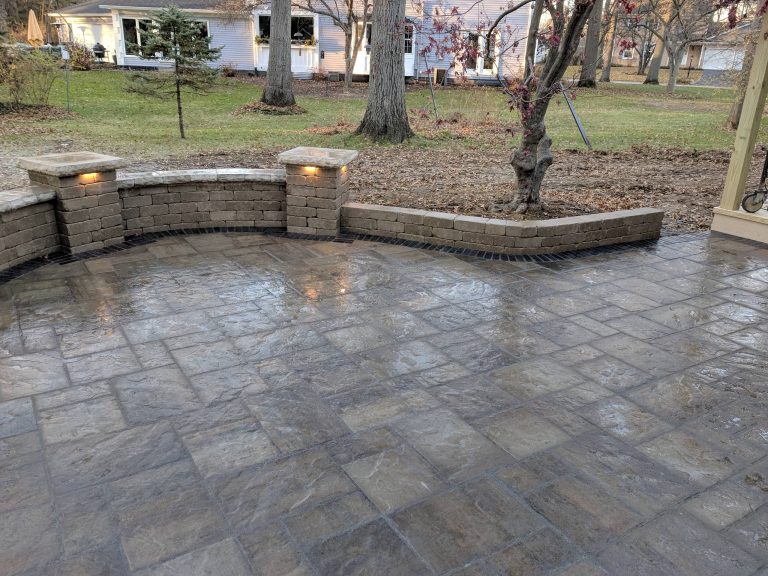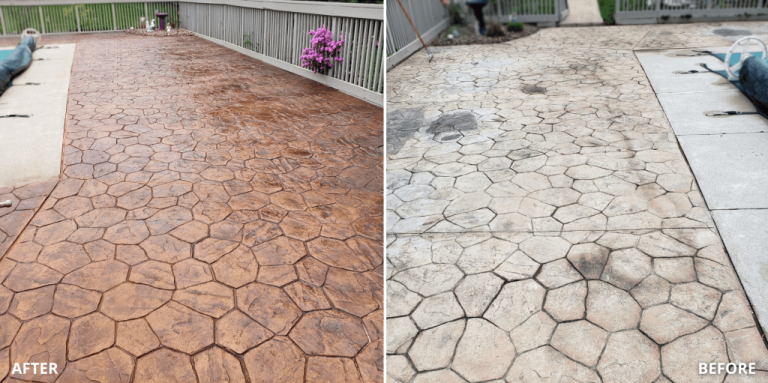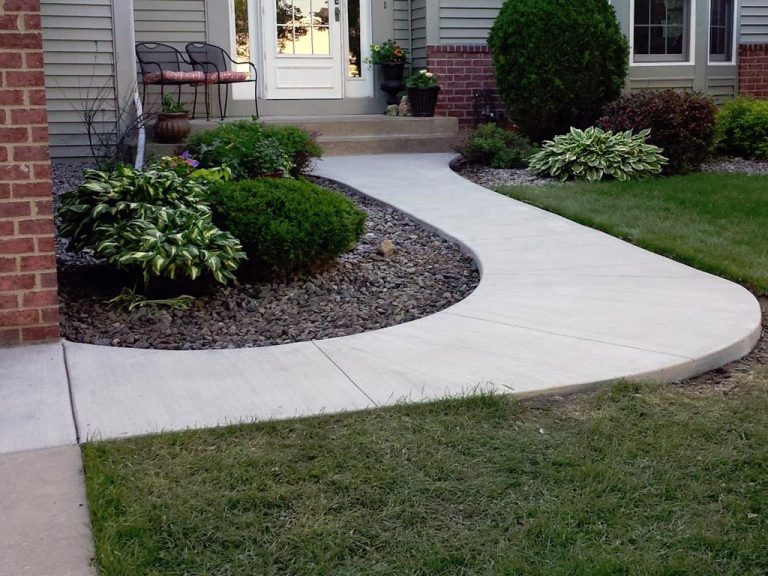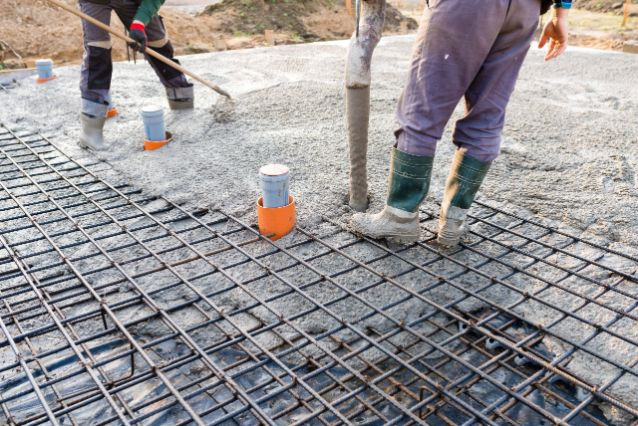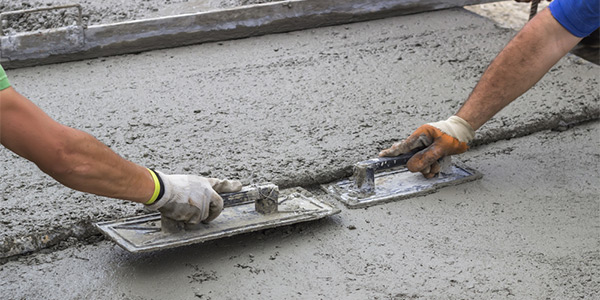Concrete is a durable material that serves as the foundation for many construction projects. However, Michigan’s unique climate, with harsh winters, temperature fluctuations, and exposure to moisture, can test its longevity.
This guide explores the factors that affect the lifespan of concrete in Michigan and provides actionable tips to help homeowners and contractors enhance its durability.
Maximizing Concrete Lifespan: Essential Tips for Michigan Homeowners
In Michigan, concrete structures like driveways, sidewalks, and patios can last anywhere from 20 to 40 years, depending on how well they are installed and maintained. To get the most out of your concrete, it’s essential to follow a few key practices:
Use Quality Materials
The lifespan of concrete starts with the materials used during installation. High-quality cement, aggregates, and proper water ratios are critical in Michigan. Opt for non-porous aggregates to reduce water absorption and protect against freeze-thaw cycles.
Reinforce with Steel
Adding steel reinforcement (like rebar or wire mesh) helps concrete withstand Michigan’s harsh winter conditions. Reinforcement prevents cracking caused by subgrade movement or temperature fluctuations, extending the life of your concrete.
Proper Curing
Curing is one of the most important steps to ensure strong concrete. In Michigan’s cold climate, retaining moisture in the concrete during the curing phase is crucial to prevent premature drying and cracking.
Properly cured concrete can increase its strength by up to 50%, which is particularly valuable in areas exposed to freeze-thaw cycles.
Regular Sealing
Michigan’s freeze-thaw cycles can cause water to seep into the concrete, leading to cracks and surface scaling. Sealing concrete periodically (every two to three years) helps to block water penetration and keeps your concrete looking new while extending its life.
Factors Affecting Concrete Durability in Michigan’s Harsh Climate
The local climate heavily influences the lifespan of concrete in Michigan. Michigan’s winters are known for freezing temperatures and significant snow, which can damage exterior concrete surfaces.
Freeze-Thaw Cycles
In Michigan, temperatures fluctuate between freezing and thawing, which can cause water trapped inside the concrete to expand and contract. This expansion leads to cracking, surface scaling, and deterioration over time.
Air-entrained concrete is essential in Michigan as it contains small air bubbles that allow water to expand without causing damage.
Salt and Chemical Exposure
Michigan roads are regularly salted during the winter, and this salt can come into contact with concrete surfaces. Salt and de-icing chemicals can accelerate concrete deterioration by increasing moisture penetration and promoting corrosion of embedded steel reinforcement
Moisture and Sub. grade Conditions
Poor drainage around concrete structures can lead to water pooling and increase freeze-thaw damage. To prevent moisture from accumulating, it’s essential to ensure that the subgrade, or the ground below the concrete, is properly prepared with gravel or crushed stone.
The Lifespan of Concrete Driveways in Michigan: What to Expect
Concrete driveways in Michigan typically last between 20 and 40 years, depending on several factors, including installation quality, maintenance, and weather conditions.
Expected Lifespan
Well-maintained concrete driveways have an average lifespan of 30 to 40 years. Driveways that receive less maintenance or are poorly installed may only last 15 to 20 years.
Key Maintenance Tips for Driveways
- Sealing: Apply sealants every few years to protect against moisture and salt damage. Sealants form a protective barrier on the surface, reducing water penetration and preventing cracks.
- Crack Repair: Address small cracks as soon as they appear. Ignoring small cracks allows water to seep in, leading to larger structural problems during freeze-thaw cycles.
- Avoid Heavy Loads: While concrete is strong, continuous heavy vehicle loads can cause stress fractures. Limit parking heavy vehicles on your driveway.
By following these tips, homeowners can ensure that their concrete driveways stand the test of time, even in Michigan’s challenging climate.
Concrete Maintenance Tips for Longevity: Keeping Your Concrete Strong
Maintenance is the key to extending the lifespan of concrete structures. Regular care not only preserves the appearance of concrete but also prevents long-term damage. Here are some essential maintenance tips for Michigan homeowners:
Regular Cleaning
Remove dirt, debris, and organic matter to keep your concrete clean. This helps prevent stains and minimizes the risk of moisture penetration that could lead to cracking during freeze-thaw cycles.
Prompt Crack Repair
Small cracks can grow quickly if left unattended, especially in Michigan’s cold winters. Crack fillers and concrete repair products seal cracks before they expand.
Avoid De-Icing Chemicals
While de-icing chemicals can help melt snow and ice, they can also cause damage to concrete surfaces. Instead, use sand or non-corrosive de-icing alternatives to provide traction without damaging your concrete.
Reseal as Needed
Sealing your concrete every two to three years is essential to keeping moisture out and protecting against Michigan’s harsh winters. Use high-quality sealers designed for freeze-thaw conditions.
How Michigan’s Environmental Conditions Impact Concrete Longevity
Michigan’s environment, characterized by heavy snowfall, cold winters, and frequent freeze-thaw cycles, significantly impacts concrete’s lifespan. Understanding how these factors affect concrete can help homeowners and contractors take proactive steps to mitigate damage.
Temperature Fluctuations
The repeated freezing and thawing that occurs during Michigan’s winters is the primary environmental factor that shortens the lifespan of concrete. These fluctuations cause expansion and contraction in the concrete, leading to micro-cracks that eventually expand and weaken the structure
Winter Salt Use
Salt is frequently used to melt ice on driveways and sidewalks in Michigan, but it can erode concrete surfaces and corrode any steel reinforcement within the slab. Choosing a salt-resistant sealer or limiting the use of salt can help prolong the life of your concrete
Humidity and Moisture
High moisture levels, whether from rain, snow, or groundwater, can weaken concrete over time. Water that seeps into cracks or joints can freeze and expand, causing further damage. Proper drainage around concrete structures can help reduce the risk of moisture-related issues.
Conclusion
In Michigan, concrete lifespan is influenced by various factors, including environmental conditions, quality of materials, and regular maintenance practices. Understanding how these elements affect concrete and taking proactive measures—such as using high-quality materials and regularly sealing concrete.

